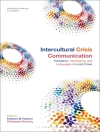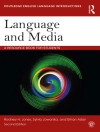Languages with free word orders pose daunting challenges to linguistic theory because they raise questions about the nature of grammatical strings. Ross, who coined the term Scrambling to refer to the relatively ‘free’ word orders found in Germanic languages (among others) notes that "… the problems involved in specifying exactly the subset of the strings which will be generated … are far too complicated for me to even mention here, let alone come to grips with" (1967:52). This book offers a radical re-analysis of middle field Scrambling. It argues that Scrambling is a concatenation effect, as described in Stroik’s (1999, 2000, 2007) Survive analysis of minimalist syntax, driven by an interpretable referentiality feature [Ref] to the middle field, where syntactically encoded features for temporality and other world indices are checked. The purpose of this book is to investigate the syntactic properties of middle field Scrambling in synchronic West Germanic languages, and to explore, to what possible extent we can classify Scrambling as a ‘syntactic phenomenon’ within Survive-minimalist desiderata.
Putnam Michael T. Putnam
Scrambling and the Survive Principle [PDF ebook]
Scrambling and the Survive Principle [PDF ebook]
Buy this ebook and get 1 more FREE!
Language English ● Format PDF ● Pages 226 ● ISBN 9789027291967 ● Publisher John Benjamins Publishing Company ● Published 2007 ● Downloadable 3 times ● Currency EUR ● ID 4232958 ● Copy protection Adobe DRM
Requires a DRM capable ebook reader












